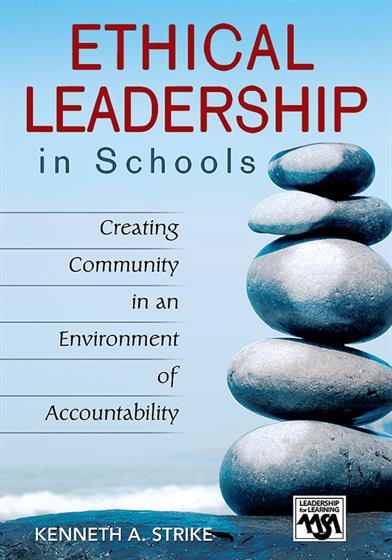Kenneth A. Strike is a professor of cultural foundations of education and of philosophy at Syracuse University. He is also professor emeritus at Cornell University, where he taught from 1971 to 2000, and is former chair of the Department of Education Policy Studies at the University of Maryland. He earned his BA from Wheaton College and his MA and PhD from Northwestern University. He has been a Distinguished Visiting Professor at the University of Alberta. He is a past president of the Philosophy of Education Society and was elected to the National Academy of Education in 1993. He was a member of the National Research Council Committee on School Finance, Equity, Adequacy, and Productivity from 1996 to 1999.
His principal interests are professional ethics and political philosophy as they apply to matters of educational practice and policy. He is the author of a number of books and well more than a hundred articles. Recent books include The Ethics of Teaching, The Ethics of School Administration, Liberal Justice, and the Marxist Critique of Schooling, and Ethics and College Student Life. Papers of note include “Professionalism, Democracy, and Discursive Communities: Normative Reflections on Restructuring” in the American Education Research Journal, “The Moral Role of Schooling in a Liberal Democratic Society” in the Review of Research in Education, “The Moral Responsibilities of Educators” in Handbook of Research on Teacher Education, “Can Schools Be Communities: The Tension Between Shared Values and Inclusion” in Educational Administration Quarterly, “Freedom of Conscience and Illiberal Socialization: The Congruence Argument” in the Journal of Philosophy of Education, “On the Construction of Public Speech: Pluralism and Public Reason” in Educational Theory, and “Centralized Goal Formation, Citizenship, and Educational Pluralism: Accountability in Liberal Democracies” in Educational Policy.
Professor Strike delivered the 1999 Kohlberg Memorial Lecture at the annual meeting of the Association for Moral Education. The address was published as “Liberalism, Communitarianism, and the Space Between: In Praise of Kindness” in the Journal of Moral Education, and he gave the keynote address at the Great Britain Philosophy of Education Society in 2000. This address was published as “Schools as Communities: Four Metaphors, Three Models, and a Dilemma or Two” in the Journal of Philosophy of Education. He has written on a variety of other topics, including school reform, desegregation, affirmative action, and religious liberty in education. His current work concerns the exploration of the normative aspects of school reform, emphasizing the notion of schools as communities. He is the recipient of a grant from the Spencer Foundation for this work.
Professor Strike lives in Thendara, New York, a small village in the Adirondack Mountains, in a house on the shore of the Moose River on which he regularly canoes, kayaks, and only occasionally bothers the fish.



